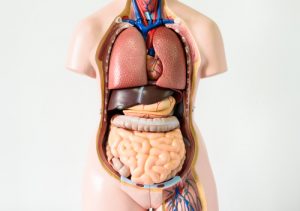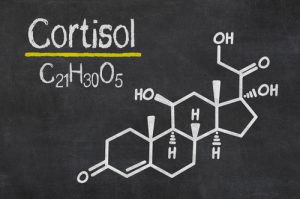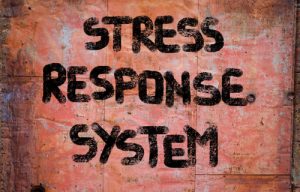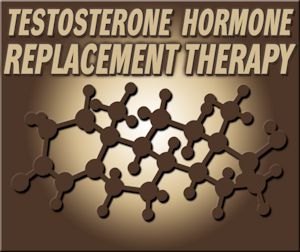 The human body is a complex web of interconnected systems.
The human body is a complex web of interconnected systems.
Hormones are responsible for influencing the way that these systems interact with one another. One category of hormones is known as stress hormones.
These hormones are designed to put the body in a state of rapid preparedness and are strongly associated with the fight-or-flight response. One of the most potent and ubiquitous stress hormones is known as Cortisol.
Video Link: https://vimeo.com/285176455
Video Download: Click Here To Download Video
Video Stream: Click Here To Stream Video
The Function of Cortisol
Testosterone is the primary hormone of male potency, and it has a complicated relationship with Stress Hormones, notably Cortisol. Historically, humans had to deal with much more dangerous and intimidating situations than we currently have to deal with today.
Cortisol is released when the body senses an immediate danger to the self. Cortisol is intended to be released in brief bursts, designed to  get humans out of a sticky situation with life and limb.
get humans out of a sticky situation with life and limb.
In such a case, Testosterone Levels spike at the same time as Cortisol Levels, helping men have the strength and the rapid response rate necessary to get out of trouble.
After the threat has passed, Cortisol levels are supposed to fall.
Stress in the Modern World
 Unfortunately, the modern world and the current human mind create a sort of tension that was likely not present in the ancient consciousness or the thoughts of our evolutionary ancestors.
Unfortunately, the modern world and the current human mind create a sort of tension that was likely not present in the ancient consciousness or the thoughts of our evolutionary ancestors.
The same large and complex brains that have allowed us to develop modern society create monsters within our own minds.
Today's rational mind is still intrinsically connected to the ancient stress management system, but now we have to deal with psychological stress in a manner that was not once the case, even in the relatively recent past.
Psychological Stress and Physical Stress are connected by the same response systems, and the complex and sometimes overwhelming society that we live in today can create overwhelming mental stress, leading to significant issues related to Chronic Stress.
As previously mentioned, hormones like Cortisol are intended to help with immediate stressors, to return us to a state of more natural balance.
Our bodies are just not designed to handle chronic stress well, which leads to a variety of health issues, including Testosterone Deficiency.
In the modern world, we rarely experience the sort of stressful spikes that were once commonplace, but we now have to deal with a constant pounding from a host of different, minor forms of stress, which all deplete our capacity to produce beneficial hormones, while also impairing psychological and physical well-being.
How are Cortisol and Testosterone Linked?
In an ideal system, our bodies have plenty of the core components necessary to produce optimal levels of Testosterone and Cortisol to help men function at their peak. Unfortunately, chronic stress creates an imbalanced system that favors Cortisol over Testosterone.
Your body is continuously primed to deal with stress, and it spends more energy-producing Cortisol than it does Testosterone.
Cortisol belongs to a group of hormones called Catabolic Hormones, meaning that they tear your body down in the long term to benefit you in the short run.
Testosterone belongs to the class of Anabolic Hormones, designed to promote long-term health and function. Anabolic Hormones help your body build and rehabilitate.
The reverse is also true because Testosterone and Cortisol are Antagonistic  Hormones.
Hormones.
When we take steps in our lives to promote elevated Testosterone Levels — by staying active, eating well, and developing positive consciousness — Cortisol Levels fall as Testosterone Levels rise.
Cortisol and other stress hormones are physiological responses to outside or internal stressors, which means that they can be managed.
Though stress and anxiety may have external sources, we can adapt psychological and physical strategies to mitigate how our minds respond to stress hormones and how our subconscious mind activates stress pathways.
Cortisol is Not the Enemy — Unresolved Stress is the Enemy
It's important to reiterate that Cortisol is an integral part of human physiology, and, while it's healthy to keep its production at a minimum, it still plays an important role — it gets our asses in gear.
It tells us that it's time to go and get things done. For example, Cortisol levels increase slowly during the night as we sleep, finally reaching a point at which it spurs us awake.
By managing stress and keeping Cortisol production at a reasonable level, we can encourage amplified Testosterone Production while also promoting a healthier mindset and lifestyle.
Though Testosterone is associated with masculinity, bravado, and confidence, it's also associated with peace of mind and can be promoted through mindful meditation and other relaxation techniques.
How Can I Learn How to Relax?
 So, there you have it — Relax more, make more Testosterone — but wait, it's obviously more complicated than that.
So, there you have it — Relax more, make more Testosterone — but wait, it's obviously more complicated than that.
There's not a magic button you can press and make stress go away.
It's a conscious, psychological effort. Like most aspects of human function, our ability to relax and fend off anxiety is like a muscle. By making small efforts to improve how you manage stress and promote mindfulness, you can make significant changes over time — but you have to take that first step.
Finding relaxation and contentment in the face of constant stress and anxiety takes effort. You have to take stock of your life — figure out what drives you and what facilitates your happiness.
Furthermore, you have to recognize what negative aspects of your lifestyle trigger anxiety and figure out ways to separate yourself from that stress or figure out ways to manage and cope with that particular stressor. In this sense, the mindset is critical.
Take stock of your life and make a concerted effort to figure out what drives you, what motivates you, and how you find fulfillment.
Active Relaxation is the Key to Promoting Optimal Hormone Balance and Warding off Low-T
There's a difference between relaxation and a passive, sedentary lifestyle. An inactive body and mind both promote stress.
If you just lay on the couch watching television all day, or compulsively reading websites (even this one!), it's not going to put you in a healthy state of mind. It's the same with physical stress. Laying in bed all day isn't going to make you feel refreshed; it's going to make you feel even more fatigued and exhausted.
One of the best ways to promote Testosterone Balance is to get active and stay active. Even if it's just going for a morning walk or engaging in some light exercise, physical exertion keeps stress hormones manageable.
On the psychological side of things, practicing yoga or meditation is a powerful way to promote mental wellness.
Mindful meditation, in particular, is highly effective at encouraging mental stability. Mindful meditation is the act of simplifying and isolating your thoughts, taking control of your mind. Instead of letting your mind flutter and bounce from idea to idea, you focus your mind.
This can be difficult to do at first, but by making an effort to promote psychological control, you can improve Hormone Balance effectively.
Of course, there are other ways to promote a similar state of mind. Rather than lounge around, pick up a book, or engage in a hobby that supports psychological wellness and focus.
By building yourself up psychologically and physically, you can also enhance your Testosterone Balance and protect against Low-T!
Reference
The roles of testosterone and cortisol in friendship formation.
Contact Us Today For A Free Consultation

- Testosterone for Women [Last Updated On: December 1st, 2023] [Originally Added On: December 29th, 2013]
- Testosterone Androgen [Last Updated On: December 11th, 2023] [Originally Added On: December 29th, 2013]
- Testosterone and Body Building [Last Updated On: December 14th, 2023] [Originally Added On: December 30th, 2013]
- Testosterone Levels [Last Updated On: December 6th, 2023] [Originally Added On: December 31st, 2013]
- Testosterone Gel, Cream, and the Testosterone Patch [Last Updated On: November 28th, 2023] [Originally Added On: December 31st, 2013]
- Buy Testosterone | Types of Testosterone Replacement Therapy Programs, Injections, Cream and Gel [Last Updated On: December 13th, 2023] [Originally Added On: December 31st, 2013]
- Buy Testosterone Injections Online, Testosterone Prescription for Low T, Testosterone Replacement Therapy [Last Updated On: October 16th, 2020] [Originally Added On: January 1st, 2014]
- Aging and Testosterone Replacement Therapy [Last Updated On: December 12th, 2023] [Originally Added On: January 3rd, 2014]
- What Causes Low Testosterone [Last Updated On: December 10th, 2023] [Originally Added On: January 7th, 2014]
- Hormone Levels in Men [Last Updated On: December 4th, 2023] [Originally Added On: January 12th, 2014]
- Hormone Level Testing [Last Updated On: November 29th, 2023] [Originally Added On: January 13th, 2014]
- Types of Testosterone Products and Delivery [Last Updated On: December 8th, 2023] [Originally Added On: January 22nd, 2014]
- Testosterone Therapy Helps Men with Low-T Ward Off Prostate Cancer [Last Updated On: May 29th, 2024] [Originally Added On: December 29th, 2019]
- The Importance of Dietary Fat for Testosterone Production [Last Updated On: July 8th, 2024] [Originally Added On: January 2nd, 2020]
- Testosterone Deficiency and Low-T at Epidemic Levels Among Men in the United States [Last Updated On: May 27th, 2024] [Originally Added On: May 17th, 2020]
- The Effects of Testosterone Therapy on Male Patients -- Who Should Use Testosterone? [Last Updated On: December 20th, 2023] [Originally Added On: June 16th, 2020]
- Does Ibuprofen Contribute to Low Testosterone? [Last Updated On: January 27th, 2024] [Originally Added On: June 20th, 2020]
- The Link Between Testosterone and Lower Rates of Autoimmune Diseases Among Men [Last Updated On: January 30th, 2024] [Originally Added On: June 21st, 2020]
- Weight Cycling and the Problem with Crash Dieting [Last Updated On: April 8th, 2024] [Originally Added On: July 30th, 2020]
- Reexamining Bio-Identical Testosterone Therapy [Last Updated On: June 18th, 2024] [Originally Added On: August 12th, 2020]
- Understanding how Muscle and Fat Impact Body Mass, Weight, and Health [Last Updated On: April 15th, 2024] [Originally Added On: August 25th, 2020]
- The Role of Nitric Oxide in Cancer Proliferation And Prevention [Last Updated On: May 3rd, 2024] [Originally Added On: August 26th, 2020]
- Understanding Heartburn in the 21st Century [Last Updated On: April 24th, 2024] [Originally Added On: August 28th, 2020]
- What is Erectile Dysfunction? [Last Updated On: April 20th, 2024] [Originally Added On: August 30th, 2020]
- Sermorelin Acetate Drug Information [Last Updated On: April 7th, 2024] [Originally Added On: August 31st, 2020]
- Exercise and Mental Health [Last Updated On: April 5th, 2024] [Originally Added On: September 1st, 2020]
- The Importance of Proteins, Carbs, and Fats [Last Updated On: March 11th, 2024] [Originally Added On: September 2nd, 2020]
- Low-T Treatment Before and After -- How Testosterone Therapy Improves Vitality [Last Updated On: April 9th, 2024] [Originally Added On: September 6th, 2020]
- Changes to LabCorp Guidelines for Low-T Diagnosis and How They Impact Your Treatment [Last Updated On: July 14th, 2024] [Originally Added On: September 22nd, 2020]
- The Effects of Testosterone on Asthma Prevalence Among Men and Women [Last Updated On: February 19th, 2024] [Originally Added On: October 6th, 2020]
- 7 Exercises to Elevate Testosterone Levels [Last Updated On: June 13th, 2024] [Originally Added On: October 10th, 2020]
- Vitamin A is Essential for Good Health - Are You Getting Enough ? [Last Updated On: April 16th, 2024] [Originally Added On: October 14th, 2020]
- Testosterone and Diet – How to Support Testosterone Levels with Healthy Eating [Last Updated On: June 7th, 2024] [Originally Added On: October 29th, 2020]
- The Significance of Telomeres in Stem Cell Treatments [Last Updated On: March 16th, 2024] [Originally Added On: November 27th, 2020]
- The Influence of Testosterone on Protective Mating Behaviors in Men [Last Updated On: January 25th, 2024] [Originally Added On: December 6th, 2020]
- The Role of Testosterone in Women's Health [Last Updated On: December 24th, 2023] [Originally Added On: December 7th, 2020]
- Testosterone Promotes Bone Health and Can Help Treat Osteoporosis [Last Updated On: February 15th, 2024] [Originally Added On: December 17th, 2020]
- The Importance of Sex Hormone-Binding Globulin (SHBG) for Healthy Testosterone Levels [Last Updated On: March 9th, 2024] [Originally Added On: December 28th, 2020]
- 12 Health Issues That Can Kill Libido and Limit Sexual Performance [Last Updated On: May 23rd, 2024] [Originally Added On: January 3rd, 2021]
- 4 Foods to Boost Your Testosterone Levels [Last Updated On: February 7th, 2024] [Originally Added On: January 4th, 2021]
- Low Testosterone Symptoms [Last Updated On: December 31st, 2023] [Originally Added On: January 7th, 2021]
- Is Male Menopause Real? The Science of Andropause [Last Updated On: January 15th, 2024] [Originally Added On: January 11th, 2021]
- Relieve Fatigue and Increase Energy with Testosterone Replacement Therapy [Last Updated On: January 16th, 2024] [Originally Added On: January 16th, 2021]
- How to Administer a Testosterone Injection -- Low-T Injection Guide [Last Updated On: February 28th, 2024] [Originally Added On: January 17th, 2021]
- Testosterone Levels Associated with Serotonin Activity in the Brain [Last Updated On: March 26th, 2024] [Originally Added On: January 19th, 2021]
- Grumpy Old Man Syndrome – Causes and Treatments [Last Updated On: June 8th, 2024] [Originally Added On: January 22nd, 2021]
- The Effects of Beer on Testosterone Production and Gynecomastia [Last Updated On: March 21st, 2024] [Originally Added On: January 30th, 2021]
- Testosterone Frequently Asked Questions [Last Updated On: February 6th, 2024] [Originally Added On: February 26th, 2021]
- Testosterone Supplements: Vitamin and Amino Acid Pills Versus Real Testosterone [Last Updated On: November 21st, 2024] [Originally Added On: March 1st, 2021]
- Testosterone Side Effects, Risks, Dangers and Negative Effects [Last Updated On: November 7th, 2024] [Originally Added On: March 2nd, 2021]
- Testosterone for Men [Last Updated On: February 20th, 2024] [Originally Added On: April 13th, 2021]
- Testosterone Testing [Last Updated On: November 9th, 2024] [Originally Added On: May 7th, 2021]
- Hormone Replacement Therapy: Commonly Asked Questions [Last Updated On: February 20th, 2024] [Originally Added On: June 16th, 2023]
Word Count: 1229




















